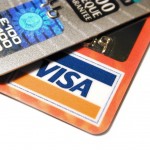 The CFPB’s Final Prepaid Card (Account) Rules are finally here after many years in the making. Rest assured there will be plenty of legal analysis and summaries provided on the 1,689 page rule the CFPB published October 5.
The CFPB’s Final Prepaid Card (Account) Rules are finally here after many years in the making. Rest assured there will be plenty of legal analysis and summaries provided on the 1,689 page rule the CFPB published October 5.
Here are a variety of reactions–from an industry news provider, leading prepaid provider, trade association and consumer group:
American Banker: “The bureau’s new rules are poised to disrupt, if not destroy, this industry and eliminate thousands of prepaid options from retail racks and online stores. Simultaneously, the rules will fundamentally transform the nature of the products themselves, making them function more like the heavily regulated banks they sought to replace.”
Green Dot‘s Steve Streit: “Green Dot embraces the new rule as recognition that the industry we started more than 15 years ago continues to serve an increasingly significant role in the everyday financial lives of a growing number of American families. We fully support the CFPB’s mission to ensure fairness, integrity and consumer protections for all participants in the financial system.”
NBPCA (Network Branded Prepaid Card Association): “While we are still analyzing the lengthy final rule to determine its full impact, it is already clear that the CFPB has dismissed many of our serious concerns and moved forward with a rule that will harm the very consumers it aims to protect. Instead of fostering financial innovation and inclusion, the CFPB’s rule will ultimately limit access to an essential mainstream consumer product that helps millions of Americans participate in the digital economy, affordably manage funds, and safely hold money.”
Pew Charitable Trusts: “By staying the course, the bureau has closed the door on practices that could have compromised consumers’ ability to use these products safely and stay out of debt.”


